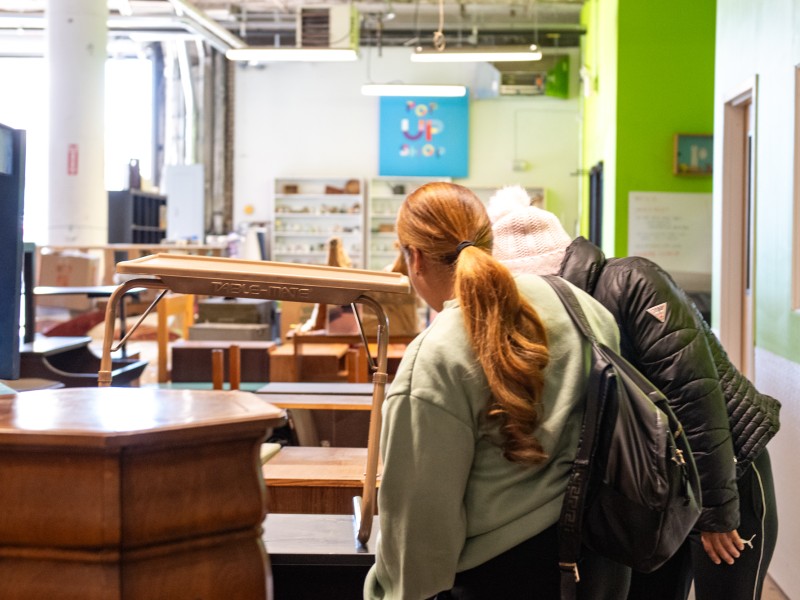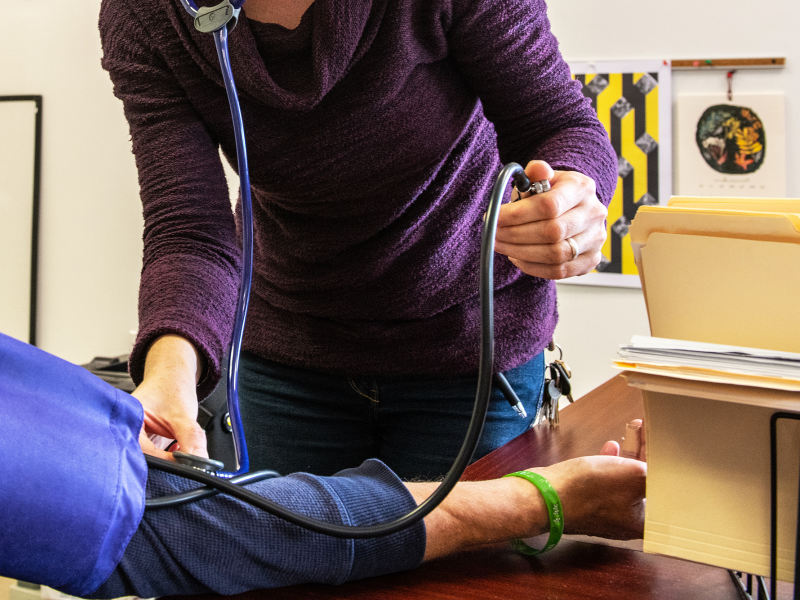How to Help Homeless Philadelphians in the Heat
This time of year, it’s easy to be grateful for the simple things. As the temperature rises, a cool drink of water, a refreshing popsicle, an air conditioned room can become the sweetest moments in a day.
For our neighbors living outside, the hot weather can make life more challenging, or even life threatening. As we flip the calendar into July with some of our hottest weekends yet, here are some tips for supporting our neighbors and friends who are living on the streets.
1) Carry Supplies
Staying hydrated is one of the basic ways we can protect our bodies in the heat. Staying hydrated when you're living outdoors requires both drinking enough fluids and finding ways to replace the electrolytes you lose when you sweat.
The next time you’re at the grocery store, buy a case of water and some pedialyte packets. In a pinch, you can mix the two to create a quickly hydrating beverage that could make a big difference for someone suffering in the heat.
Common signs of mild dehydration include a dry or sticky mouth, a headache or muscle cramps. More severe dehydration may involve dry skin, fainting, dizziness or a rapid heart-beat.
If you think someone may be experiencing dehydration, it is important to get help. You can encourage them to visit the emergency room, or call 9-1-1 to report your concern. When possible, let the person know you are calling 9-1-1, as many people struggling with mental illness are fearful of interacting with police.
2) Phone a Friend
Though the average stroll down Market street might lead you to believe that many Philadelphians are living outside with no support, there are thankfully many resources that people on the streets can access.
Philadelphia has 5 dedicated outreach teams that travel all over the city searching for people who are living outside to offer them services and help. For information on free meals, shelters and other services available in Philadelphia, click here for Project Home's Where to Turn guide.
If you meet someone who is homeless and looking for shelter, call the outreach team at 215-232-1984. During especially prolonged periods of heat, the city opens extra shelter space and doubles down on efforts to connect with people who are outside. Put this number in your phone now, and use it the next time someone needs a cool place to be.
3) Hire a Professional
While donating money can feel impersonal or insufficient for a problem as entrenched as homelessness, the truth is that long term relationships are crucial for helping someone transition into life indoors.
Hundreds of men and women in our city are dedicating their careers to create long-term relationships and support systems for people coming off of the streets. Investing in them is a great way to ensure your support really transforms someone’s life.
Most non-profits are funded largely with grants and contracts, which are slotted for specific uses. When a particularly hot summer shoots cooling bills through the roof, or inspires lots of people to accept services at once, donated funds are instrumental in helping us cover these excess costs and serve the people under our care.
You can click here to donate to Pathways and help people transition to housing this summer.
4) Engage
The most important thing to remember as you struggle through the heat this summer is that all of us are instrumental in taking care of the members of our community. If you pass someone every week on the street who seems like they're struggling, start a conversation with them.
Thank you for your care! You, as a member of the community, are an important first step in ensuring that vulnerable people living on our streets get to relax and enjoy a little bit of summer too.
Donate to Pathways to Housing PA so that we can help our participants keep safe from the elements all year long.
Like us on Facebook and follow us on Twitter
About the Author
Becca DeWhitt is an MBA candidate at Temple University. She is passionate about creating a world where everyone's experience and perspective is valued, and sees story-telling as a powerful tool to that end.


